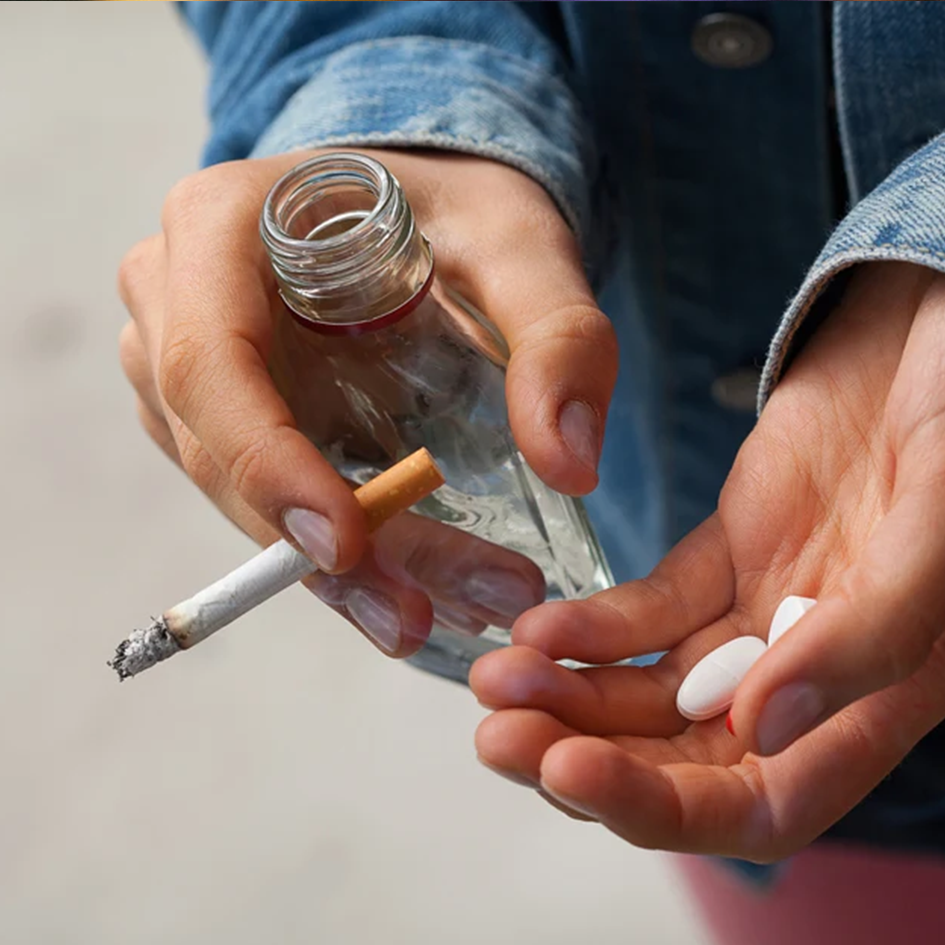
Talk about alcohol, vaping and drugs before your child encounters them. Keep it age-appropriate, calm and factual to encourage openness and trust.
Substance Use and Addiction

Substance use and addiction are complex issues that can affect young people in many different ways. While some may experiment out of curiosity or peer influence, others may use substances as a way to manage stress, anxiety or emotional pain. What may begin as occasional use can sometimes become a pattern that impacts mood, motivation and wellbeing. The developing teenage brain is particularly vulnerable to the effects of alcohol, vaping and drugs, making early use more likely to lead to harm.
For many families, understanding substance use means looking beyond the behaviour to what might be driving it. Risk-taking is a normal part of adolescence, but for some young people, it can also be a signal that they are struggling to cope. Substances can offer temporary relief, but they can also mask underlying issues such as loneliness, low self-esteem or poor mental health. When left unrecognised or unsupported, substance use can interfere with school performance, relationships and emotional development, leading to more serious challenges later in life.
Start conversations early
Talk about alcohol, vaping and drugs before your child encounters them. Keep it age-appropriate, calm and factual to encourage openness and trust.
Listen without judgement
f your child raises questions or concerns, listen carefully and avoid reacting with anger or fear. Let them know they can always come to you for honest, supportive guidance.
Stay informed
Learn about the substances young people are most exposed to, and the risks involved. Being informed helps you answer questions confidently and correct misinformation.
Set clear expectations
Explain your family’s values and boundaries around substance use. Be consistent, but also open to discussion about why these expectations matter for health and safety.
Model healthy coping strategies
Show your child positive ways to manage stress, such as exercising, spending time outdoors, or talking through challenges, rather than turning to unhealthy coping mechanisms.
Know the warning signs
Be alert to sudden changes in mood, energy, friends or school engagement. These may be early signs of distress, anxiety or risky behaviour that need gentle support.
Keep connected
Spend regular, quality time together. A strong parent–child connection is one of the most powerful protective factors against substance misuse.
Encourage healthy friendships
Help your child build positive, supportive friendships. Encourage relationships that align with shared values and healthy choices.
Teach refusal skills
Practise simple ways to say “no” or avoid peer pressure. Role-playing can help your child feel confident and prepared in real situations.
Seek support early
If you’re concerned, reach out to your GP, school counsellor or a specialist service. Early intervention can prevent harm and help young people build resilience and self-awareness.